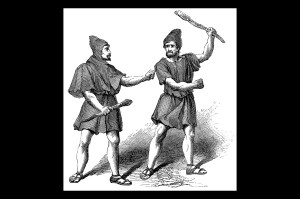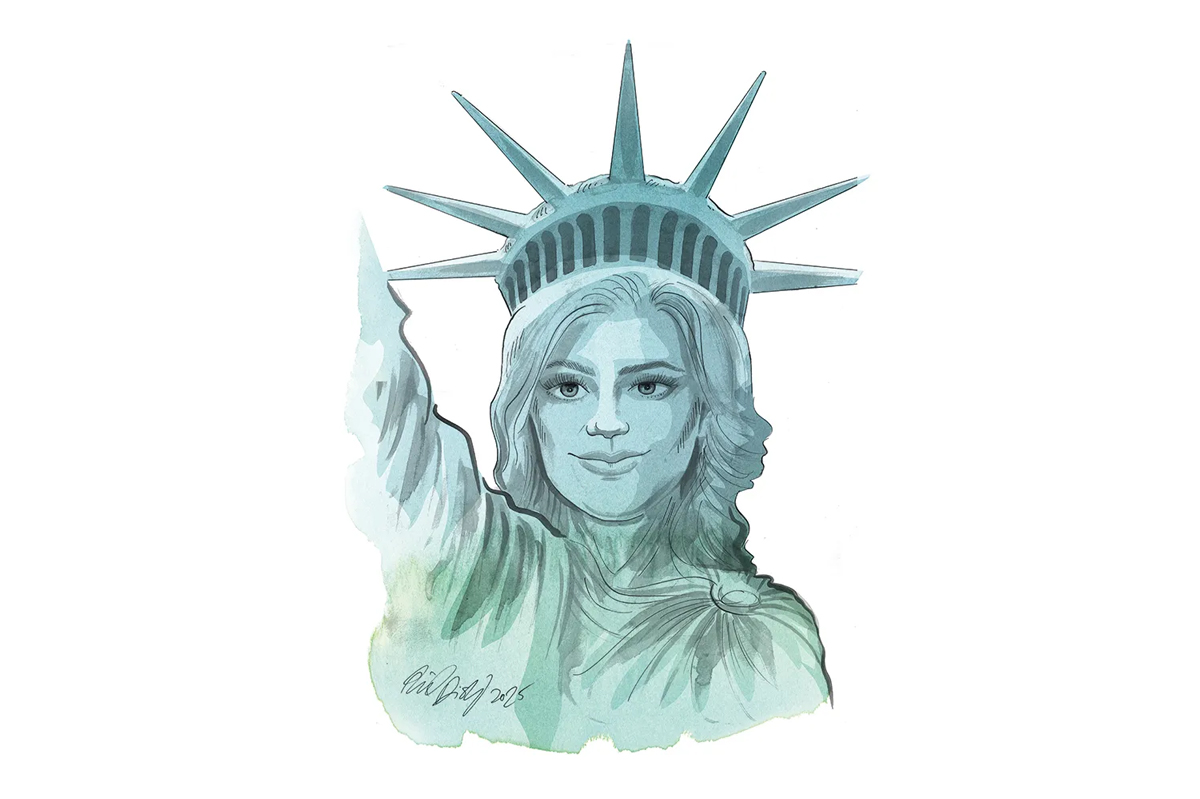There are few countries in the world more conscious of the fragility of democracy than Germany. After the horrors of Nazism, the country vowed never again and, in August 1948, a constitution was drafted for West Germany that was designed to build a stable democracy and defend it. Seventy-five years later, the same legal framework continues to uphold the same values, but the challenges mounted by increasing fanaticism are keenly felt. The temptation to use the constitution’s own heavy-handed tools to defend democracy is great, but politicians must resist it.
When the German president Frank-Walter Steinmeier led the celebrations for the seventy-fifth anniversary of his country’s political inception last week, he warned the German people that “in the fight against extremism, there is a historical lesson that runs like a thread through the draft constitution… and that is still relevant today: a democracy has to be able to defend itself against its enemies. Never again must democratic rights be misused to abolish freedom and democracy.”
Alluding to the way the Nazi Party was able to use its electoral support to destroy Germany’s interwar democracy, Steinmeier expressed his deep concern about the rise of the far-right party Alternative für Deutschland (AfD), which is currently polling as the second largest political force. As president, Steinmeier is bound to stand above party politics, so the AfD was not directly mentioned in his speech, but there was no doubt who he was talking about when he said, “the constitution cannot encompass those who are enemies of the constitution.”
To many observers, this sounded like a call to ban the AfD. The constitution allows this if a party or its members seek to undermine or destroy the existing framework of German democracy. But it is one of the bluntest tools in the box. Steinmeier undoubtedly hinted at such drastic measures out of genuine concern for the democratic order his country has so carefully sought to protect. But as head of state, his words carry weight and such threats may backfire, alienating and galvanizing AfD voters rather than enticing them back into the mainstream.
The idea that political parties can or should be banned is profoundly undemocratic. The freedom of association enshrined in the German constitution allows everyone to found, support and join organizations, including political parties. In 1948, there was an argument for some kind of backstop, given how Nazism had pervaded every aspect of life — and there were still many Germans who believed in its ideals and might have been tempted to set up or vote for parties that embodied them.
The Federal Constitutional Court used its right to ban parties only twice: on a neo-Nazi group in 1952 and on the Communist Party in 1956. Since then, decades have passed and German democracy built a reputation as a beacon of stability, but the ghosts of Germany’s past haven’t stopped haunting the nation. As inflation, party-political infighting and societal divisions plague the country, it is the same perception of crisis that is driving people into the arms of the AfD and causing the centrists to panic.
Many prominent political figures and institutions have joined the call for a ban on the AfD. Saskia Esken, co-leader of Chancellor Olaf Scholz’s Social Democratic Party (SPD), told the German press that it was her view that the AfD had “anti-constitutional aims” and if this could be proved, “this party should be banned.” Marco Wanderwitz of the Christian Democrats, once Angela Merkel’s minister for eastern Germany, where the AfD is particularly strong, also argued that the party fulfilled all the requirements for a ban and that this would give “democracy breathing space.”
Even the influential political magazine Der Spiegel ran a leading article that called for the use of “the sharpest weapon available to a democracy ready to defend itself.” Thomas Haldenwang, the head of the domestic intelligence agency, which would have to gather the evidence necessary for a legal ban, has also criticized the AfD in public, indicating that he would be happy to help pave the legal path towards such measures.
But a party ban would not only be ineffective, it would also prove that Germany’s democratic ecosystem is so out of kilter that the most drastic legal measure available is required to set it right.
For one thing, many AfD voters have turned to the party because they have lost trust in the established political parties and public institutions. When they see other parties, newspapers, the domestic spy agency and the president all singing from the same hymn sheet, it confirms feelings of persecution and fuels conspiracy theories. The party has already launched legal measures against Haldenwang and others as its polling figures hit record highs this summer.
A recent survey even indicated that 10 percent of the AfD voters want their party banned because they think they can gain a political advantage from this. If the party didn’t formally exist, it would be much harder to monitor the activities of its members and supporters. When Otto von Bismarck, Germany’s first chancellor from 1871 to 1890 banned the SPD, that was exactly what happened. Members formed underground networks, stood as independent candidates in elections and galvanized their support base.
But most importantly, a party ban simply would not address the problem. If the surveys are correct, up to 21 percent of the German electorate would currently vote for the AfD. That means millions of people are unhappy with the status quo — the vast majority of whom will have voted for mainstream parties in the past. While the party is rapidly radicalizing, its supporters cannot be written off wholesale as irretrievable extremists. Taking the political vehicle of their discontent away would do nothing to alleviate the discontent itself. As one German political scientist put it: “you cannot place a ban on opinions and attitudes.”
Germany must resist the urge to reach for the political crutches that helped it make its first steps towards democracy after fascism and war. Seventy-five years have passed since then. It’s time for German democracy to confront its problems rather than silence their expression.
This article was originally published on The Spectator’s UK website.

























